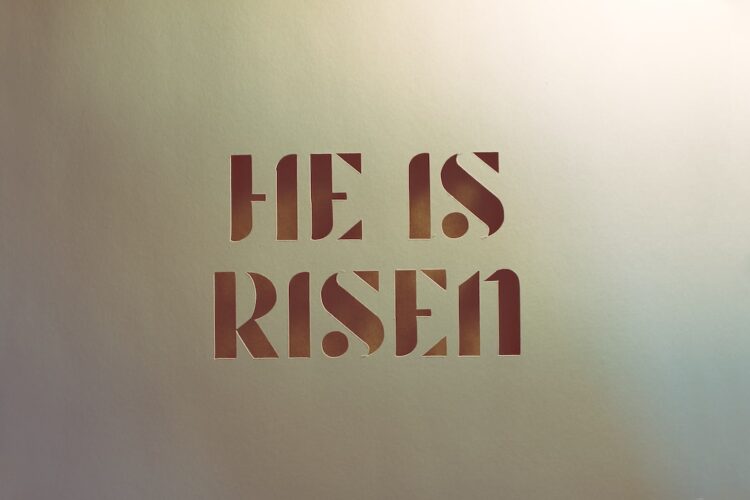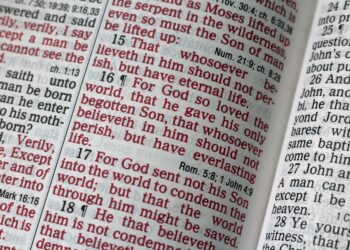The Power of Prayer: Does it Really Make a Difference?
Prayer, a practice deeply rooted in various religions and spiritual beliefs, has been a source of comfort and guidance for millions of people throughout human history. It is a way to communicate with a higher power or spiritual force, seeking guidance, solace, and blessings. But does prayer truly possess the power to bring about changes in our lives, or is it merely a psychological or cultural phenomenon? In this post, we explore the concept of prayer and its potential impact on our lives.
To comprehend the power of prayer, we need to understand its purpose and the mindset behind it. Prayer often involves a sense of surrender, humility, and trust in something greater than ourselves. It allows individuals to express their deepest desires, hopes, and fears, seeking guidance, support, and comfort. Prayer provides an avenue for introspection, self-reflection, and connection with the divine.
While some may view prayer as a passive practice, believers argue that it has the potential to bring about positive changes in various aspects of life. Prayer is seen as a catalyst for personal transformation, helping individuals develop qualities such as compassion, gratitude, forgiveness, and resilience. Moreover, prayer can provide a sense of inner peace, acting as a remedy for stress, anxiety, and depression.
Scientific studies on the effects of prayer have yielded varied results. Some studies suggest that prayer may have positive outcomes, especially in the realm of mental health and well-being. Prayer can serve as a coping mechanism, providing individuals with a sense of control and hope during challenging times. Additionally, prayer has been associated with reduced levels of stress and increased feelings of calmness.
However, the topic of prayer’s efficacy becomes more complex when considering the physical realm. Can prayer really influence the outcome of medical conditions or alter the course of events? This area has raised debates among both believers and skeptics.
Some proponents of prayer argue that it has the ability to facilitate healing. They point to numerous anecdotal stories of individuals who have experienced miraculous recoveries after being prayed for. They believe that prayer taps into a higher power, unleashing divine intervention that can lead to physical healing.
On the other hand, skeptics argue that the observed healings can often be attributed to factors such as the placebo effect, spontaneous remission, or medical treatments coinciding with the prayers. They argue that there is a lack of scientific evidence to establish a causal link between prayer and physical healing.
One interesting aspect surrounding prayer is the concept of intercessory prayer, where individuals pray for the well-being of others. This practice has been the subject of scientific studies seeking to investigate its effects. Some studies suggest that intercessory prayer may lead to positive outcomes, such as improved recovery rates in patients or enhanced well-being.
However, critics of these studies argue that the observed positive outcomes could be due to factors such as the placebo effect or random chance. They emphasize the need for more rigorous scientific research to draw definitive conclusions about the potential impact of intercessory prayer.
Regardless of the debates surrounding its effectiveness, it is clear that prayer holds immense value for many individuals. It serves as a beacon of hope, strength, and guidance in difficult times. Prayer allows people to find solace in moments of uncertainty, giving them a sense of purpose and connection to something greater.
Prayer also fosters a sense of community and togetherness. It brings people together, transcending geographic, cultural, and religious boundaries. In times of crisis, prayer can unite individuals in collective action, mobilizing efforts to bring about positive change.
Ultimately, the power of prayer may lie in its ability to enhance our overall well-being, both emotionally and spiritually. It offers a channel to express gratitude, seek forgiveness, and connect with a higher power. Prayer allows individuals to find strength within themselves, tap into their inner resources, and discover purpose in life’s challenges.
While the question of whether prayer truly makes a difference in the physical realm remains unanswered, the impact it has on individuals’ lives cannot be denied. It provides comfort, hope, and a sense of belonging, ultimately helping individuals navigate the complexities of existence.
In conclusion, the power of prayer is a deeply personal and subjective experience. While scientists may continue to debate its effects and skeptics may search for concrete evidence, prayer continues to be a significant practice for many individuals worldwide. It offers solace, guidance, and a connection to something greater than ourselves. Despite the uncertainties, it remains an enduring and powerful force in the hearts and minds of those who believe in its potential to make a difference.













